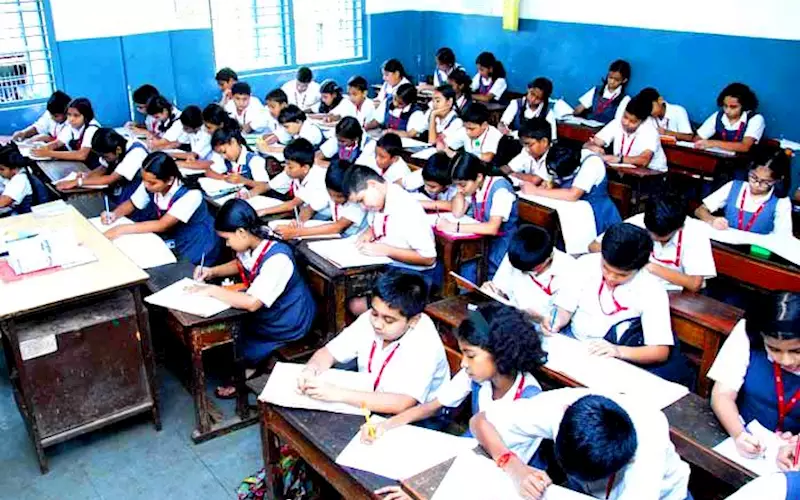K-12 book market to grow at CAGR of 19.6% by 2019-20
K-12 education system in India is one of the largest in the world, with more than 1.5 million schools and 259 million students enrolled. According to recent statistics, schools have grown at a CAGR of 2.7%, from 1.36 million in 2010-11 to 1.52 million in 2014-15, while enrolment has grown from 24.7 million in 2010-11 to reach 259 million students in 2014-15, a CAGR of 1.1%.
16 Dec 2016 | By Dibyajyoti Sarma
This was revealed by Vikrant Mathur, director, Nielsen India, while launching the FICCI–Nielsen Report: K-12 Book Publishing: Market Report 2016 during PubliCon 2016, FICCI’s flagship programme in publishing.
The report estimates that the K-12 Indian book market would grow at a CAGR of 19.6%, from Rs 2,21.7 billion in 2014-15 to Rs 5,41.9 billion by 2019-20.
Mathur established the potential for school book publishing sector in India with the help of the fact that the school going population (children aged 5-14) in India in 2015 constitute 19.4% of the total population of the country, more than 3 times the size of the UK, US and Brazilian population together.
Speaking during the event, Krishna Kumar, renowned educationalist, professor, Department of Education, University of Delhi, and former director, NCERT, highlighted the basic difference between textbooks published in developed and developing world. He said textbooks in developed markets make children read other books while books in India confine our children to the syllabus. Books should not make children obsessed with them, but act as a window to connect with the rest of the world. Education ought to make society more open, he added.
On the contribution of private publishers in textbook publication, Kumar said textbooks attached to a syllabus could be present in a variety of ways. NCERT books cover about 15% of the textbook market and that is where private players could play a significant part.
Rohit Kumar, co-chair FICCI publishing committee and advisor, RELX, said the initiative, ‘publishing for schools’ taken by the FICCI committee is time relevant and well appreciated, and FICCI will continue to address various issues in this segment of the publishing sector.
Emphasising on the significance of intellectual property rights for the sustenance of publishing industry, he said the book publishing industry runs on meagre margins and copyright violations through photo-copying of printed content is leading to diminishing attraction towards the job of content creation. It is therefore high time that people should recognise the contribution of authors and publishers in creation and dissemination of knowledge by respecting their copyrights.
Urvashi Butalia, chair, FICCI publishing committee and director, Zubaan, briefly highlighted the significance of the theme of the conference and said that it is one of the biggest segments in overall publishing sector.











 See All
See All